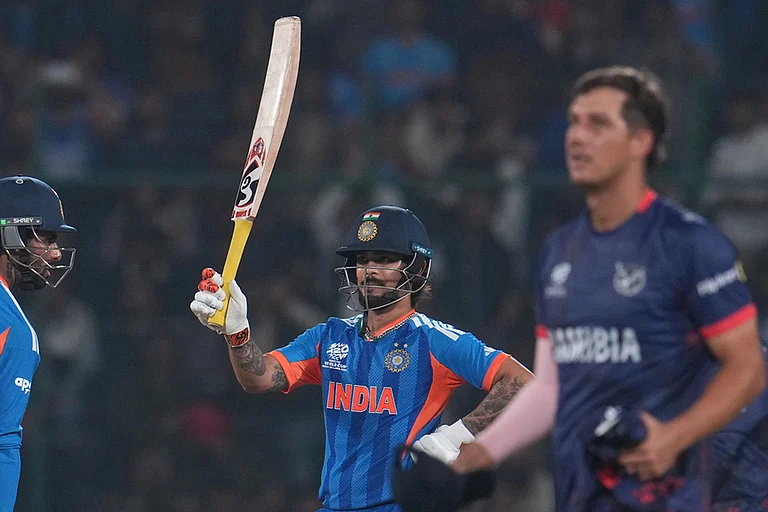Manoj Bajpayee starrer courtroom drama ‘Bandaa’ exemplified a strong social message and left the audience in complete awe. The blockbuster film has been riding high in viewership numbers and has already attained 200MN+ viewing minutes within a recording-breaking time post its premiere on Zee5. The makers of the film have been flooded with an overwhelming number of positive reviews for Manoj Bajpayee’s spectacular performance.
The film chronicles the story of an ordinary man - a high court lawyer who single-handedly fought an extraordinary case against the country’s biggest self-proclaimed Godman and successfully ended up prosecuting him for the rape of a minor under the POCSO act. Despite death threats against him, his family and the key witnesses, P.C Solanki was persistent in his fight for the truth. This brave cinematic representation delivers a powerful message about the resilience of the human spirit and leaves you feeling inspired.
Let’s have a look at a few ground-breaking scenes which are an example of how convoluted India's legal system could be:
- A highly controversial case against the country’s biggest godman was a case nobody was willing to fight with honesty. P.C. Solanki instantly accepts such a case that others would deem problematic for their careers. His only condition was that the victim’s family stay true to themselves and their truth until the end. Solanki was willing to fight for the truth regardless of the struggle as long as this one condition was fulfilled.
- Amidst the trial, the defence lawyer grills Nu with oppressive questions about moments that are traumatic for her to recall, in an attempt to twist the slightest slip-up on her part. The overawing questions discomfort the viewers as well, but Nu displays exemplary courage. We witness a girl’s determination, refuting to concede to her perpetrators and speak her spine-raising truth in its utterly raw form.
- As Nu starts losing her morale, Solanki lifts her confidence by reminding her of the immense confidence she has displayed. He lets her know that ‘ab toh shankhnaad ho chukka hai bitiya’, and that the war has begun. As they loudly chant ‘Har Har Mahadev’ gawking over a bird-eye view of Jodhpur city, it resembles them claiming power over the world giving goosebumps to the audience.
- Solanki is star-struck by a seasoned lawyer, Venketeshwara Swami, and initiated a conversation with his idol. Soon, he realizes that Swami is an admirer of the Baba as he praises the latter for the countless charitable work he has executed. Completely unfazed by this, Solanki calmly asks Swami if charity gives one the license to rape someone. This scene breaks down the entire system into one simple fact that one doesn’t get access to violate another person just because they are charitable or in a position of power.
- As the case reaches its threshold, where both counsels deliver their closing statements, Solanki shakes everyone to their bones as he draws an intense mythological comparison between Baba and Raavan from Ramayana. He describes the Baba’s actions as ‘mahapaap’ that even the most generous Lord Shiva won’t forgive. The pain that Solanki feels for Nu and the outrage he feels towards Baba is clearly felt in his voice as he claims the death penalty at the end of his closing speech. The heart-wrenching monologue by Manoj Bajpayee leaves the viewer still, with goosebumps and teary eyes.



























